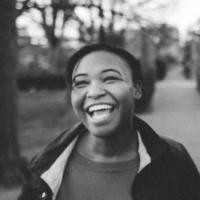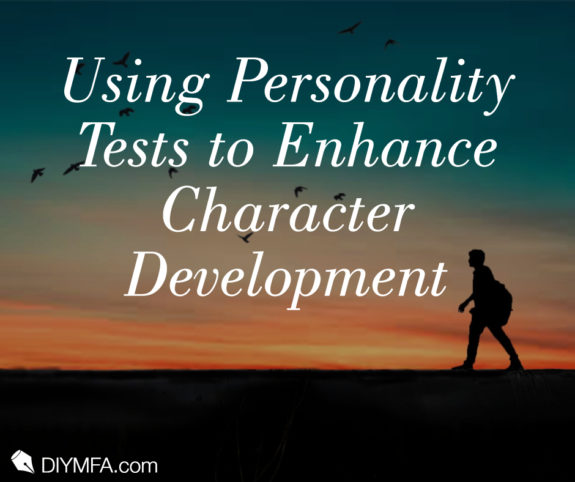On a six-hour car ride with friends to one of the nine weddings my husband and I attended last year, we got into a conversation about personality types and the tests people take to determine them. From figuring out where you get your energy from to what motivates you to how you express and receive love, a personality test is a great window into who a person is and what makes them that way.
Sometimes we spend so much time with our characters and stories that we think we know absolutely everything about them. That is, until something pops up on the page that takes us by surprise, either because we didn’t expect it or it feels just a little out of place. That can cause us to stall out on moving our stories forward.
One of the things that has served as an incredible tool to help reignite my creative engine and get me past those moments has been exploring different personality types and tests. There are countless ones out there, but they all help give us a way to understand how and why we are the way we are. And they can do the same thing for our characters.
The main character of my novel, Abigail, for example, has surprised me more times than I can count over the course of the ten years I’ve been working on this project. Whenever I got stuck or got writer’s block and needed a creative boost out of it, I dove into her personality. These tests have only enhanced that dive so that whenever she runs into a challenging circumstance or has to make a decision about something, I know better what she’ll do even if I don’t necessarily agree with it. And there are many of her decisions that I don’t agree with. But, because of her personality and experiences, it all makes sense for her.
So, if you ever find yourself stuck on the next move in one of your stories and need a bit of a creative boost, try exploring different personality tests and types. Even take a few for your characters if you can to get a better understanding of who and how they are. But keep in mind, one size does not fit all and each test can tell you something different or enhance what you already know about your characters. The following are ones that I’ve used in the past and still use today:
Personality Test 1) Myers-Briggs Type Indicator
If you are unfamiliar with this test, the Myers-Briggs Type Indicator (MBTI) is a personality test that is supposed to help users figure out how they perceive the world and how they make their decisions based on those perceptions. This is expressed through one of the 16 personality types that are a combination of four factors: Introversion/Extroversion, Intuition/Sensing, Feeling/Thinking and Judging/Perceiving. My personality type based on this test is ENFJ while many of my characters fall more into the ISTP/ISTJ categories.
What I use it for: How my characters perceive their world
This tends to come out in their dialogue and body language. But having a clearer window into how they view the world they’re in (whether they agree with it or not, or view it as something that is helpful to society or hindering), helps get me past those moments where I get caught up in how they’ll respond to something. For Abigail, who is an ISTJ, her perception of her world is the same as the authoritarian state in which she lives: for everyone to remain safe, everyone must remain the same.
Personality Test 2) Enneagram Test
The test my husband and our friends talked about on the way to the wedding was the Enneagram Test, which takes a deeper dive into a person’s motivations, desires and fears, and how all of those things drive our actions. There are nine personality types according to this test: 1 The Reformer, 2 The Helper, 3 The Achiever, 4 The Individualist, 5 The Investigator, 6 The Loyalist, 7 The Enthusiast, 8 The Challenger and 9 The Peacemaker. And while most people generally fit into one of these personality types, everyone also has what is known as a ‘Wing’ of another personality type that fully rounds them out. My number according to this test is a 5 with a 4 wing (5w4). My characters tend to lean a little closer to me in this test.
What I use it for: How my characters respond to their world based on that perception
I’ve learned that it is so much easier to determine what decision a character will make when you know what motivates them. And not just the circumstances they’re in (like if they’re running for their lives, for example), but their deepest desires and fears that drive that motivation. For Abigail, who leans more toward the Loyalist type, she has a deep motivation for security, but can have problems with suspicion, which is what her story revolves around.
Personality Test 3) The Five Love Languages
This was a personality test I hadn’t heard about until I graduated from college, but The Five Love Languages test has been used to give couples an insight into their romantic relationship and how they both give and receive love.
As per its title, there are five love languages: Words of Affirmation, Acts of Service, Receiving Gifts, Quality Time and Physical Touch. Now, I’ve used this test for far more than just romantic relationships as all of the languages, at least to me, can be applied to all types of relationships, just at varying degrees. For me, the way I like to receive love is through Quality Time and the way I like to give love is through Acts of Service. My characters, on the other hand, are all over the map.
What I use it for: How my characters exercise those responses on others
Character relationships in stories are just as crucial to driving the story forward as the action and the circumstances. So, figuring out how and why your characters respond to each other a certain way can help pull the entire narrative together. For Abigail, it is the Words of Affirmation she gives to others and the Acts of Service she expects in return that her perception of her world and her motivations illuminate.
All of these tests combined have helped me think so much deeper and more creatively about not only my main character, but every character in my stories as I’ve been able to not just watch them make decisions but name the why behind those decisions. And that has served as invaluable inspiration to create real characters and real stories that readers can connect with, regardless of the different worlds they belong to.

Jenn Walton is a writer, editor and storyteller based in Washington, D.C., whose fiction works are housed mainly in the speculative genre. She has completed her first novel project that explores, through the lens of a failing utopia, what happens when society gives in to its fear of the other. She previously wrote for a communications firm where she drafted and edited sponsored and organic content for top-tier academic institutions, Fortune 500 companies and leading philanthropic organizations that has run in The Washington Post, USA Today and the Atlantic. For more from Jenn, please visit her at her website or on Twitter.







